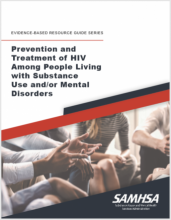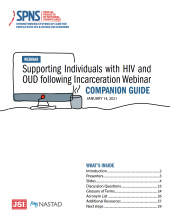
Articles in this supplement focus on the global opioid crisis, including coverage of harm reduction approaches, health justice promotion, and lessons learned.



Articles in this supplement focus on the global opioid crisis, including coverage of harm reduction approaches, health justice promotion, and lessons learned.
Building on last month’s episode about providing HIV and substance use care for people who are incarcerated, this month the Boston Medical Center Team talks with Dr.
In response to an increased risk of overdose, several communities in the U.S. are considering establishing spaces for people to use substances safely.
The COVID-19 pandemic resulted in federal policy changes related to telehealth use that allowed states to maximize access to medications for opioid use disorder (MOUD) through telehealth.
Individuals who have HIV who also use drugs experience increased age-matched morbidity and mortality in comparison with those with HIV who do not use drugs.
This newly released national strategy confronts the rising rates of opioid and non-opioid related fatal overdoses.
This document describes the critical role that peers have in developing and delivering care for people with HIV and OUD and how a state’s Medicaid program can serve as an essential fiscal resource in supporting peer services.
This discussion guide is intended to elicit a comprehensive and concrete conversation about language, stigma, and discrimination as a means of strengthening care systems and ensuring that people who seek care for HIV and/or substance use disorders, including opioid use disorder, are treated with
This month’s Connecting Care episode continues the conversation about barriers to methadone treatment for patients, stigma, and what we can learn from other countries to advance policy and practice for methadone in the US.
This month’s Connecting Care episode discusses the challenges associated with entering and staying in methadone treatment programs and opportunities to improve treatment experiences for all.